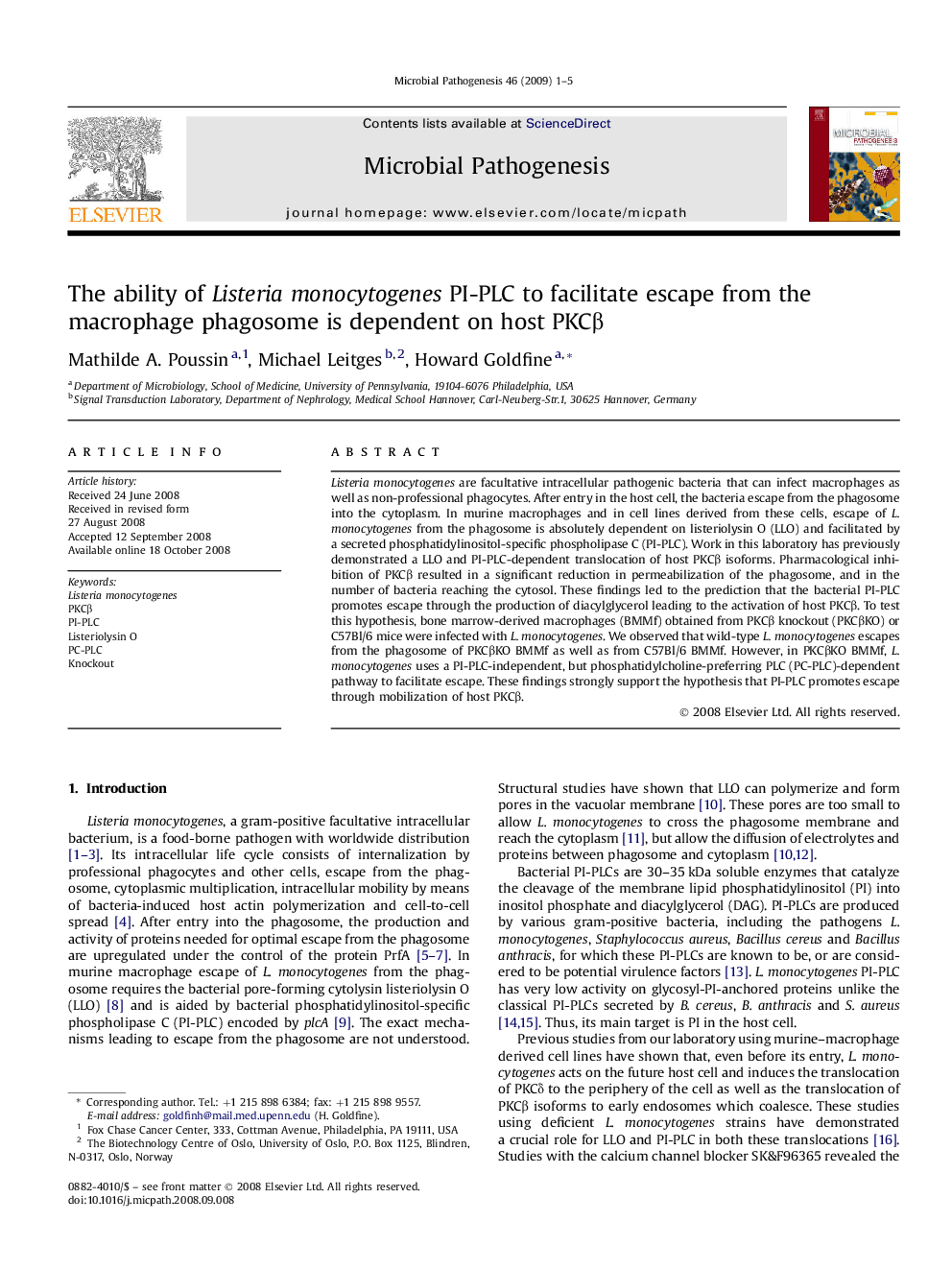| Article ID | Journal | Published Year | Pages | File Type |
|---|---|---|---|---|
| 3416931 | Microbial Pathogenesis | 2009 | 5 Pages |
Listeria monocytogenes are facultative intracellular pathogenic bacteria that can infect macrophages as well as non-professional phagocytes. After entry in the host cell, the bacteria escape from the phagosome into the cytoplasm. In murine macrophages and in cell lines derived from these cells, escape of L. monocytogenes from the phagosome is absolutely dependent on listeriolysin O (LLO) and facilitated by a secreted phosphatidylinositol-specific phospholipase C (PI-PLC). Work in this laboratory has previously demonstrated a LLO and PI-PLC-dependent translocation of host PKCβ isoforms. Pharmacological inhibition of PKCβ resulted in a significant reduction in permeabilization of the phagosome, and in the number of bacteria reaching the cytosol. These findings led to the prediction that the bacterial PI-PLC promotes escape through the production of diacylglycerol leading to the activation of host PKCβ. To test this hypothesis, bone marrow-derived macrophages (BMMf) obtained from PKCβ knockout (PKCβKO) or C57Bl/6 mice were infected with L. monocytogenes. We observed that wild-type L. monocytogenes escapes from the phagosome of PKCβKO BMMf as well as from C57Bl/6 BMMf. However, in PKCβKO BMMf, L. monocytogenes uses a PI-PLC-independent, but phosphatidylcholine-preferring PLC (PC-PLC)-dependent pathway to facilitate escape. These findings strongly support the hypothesis that PI-PLC promotes escape through mobilization of host PKCβ.
